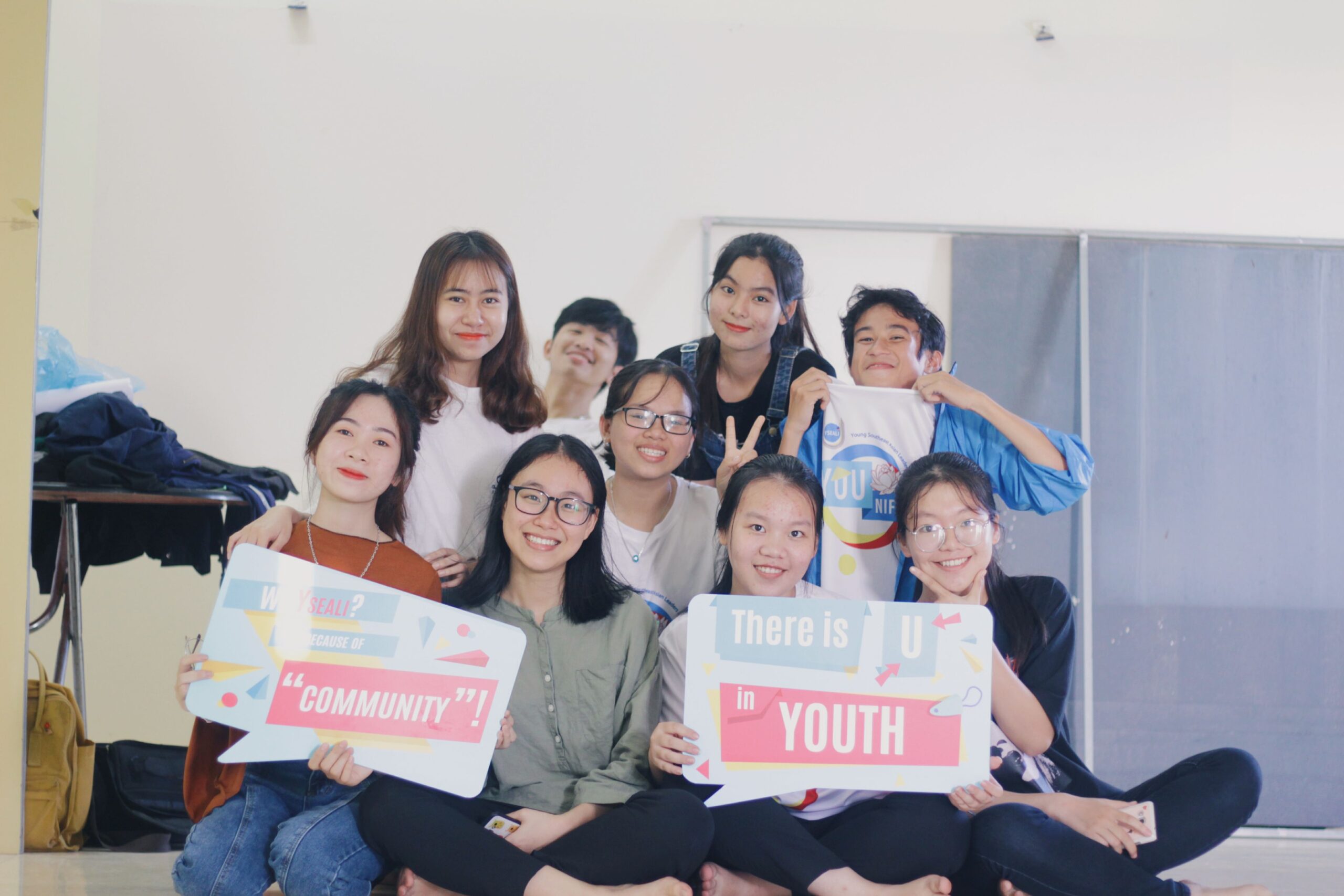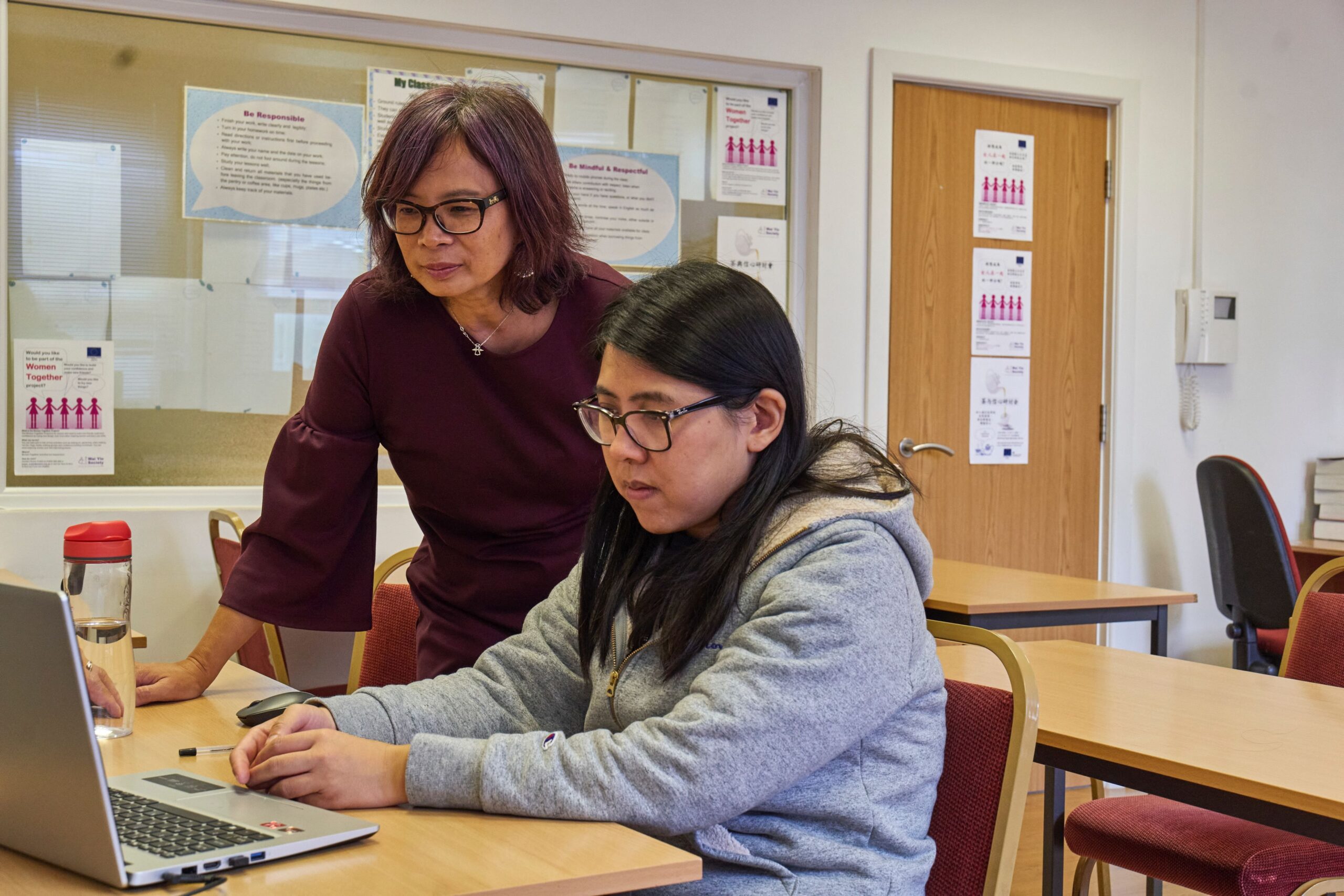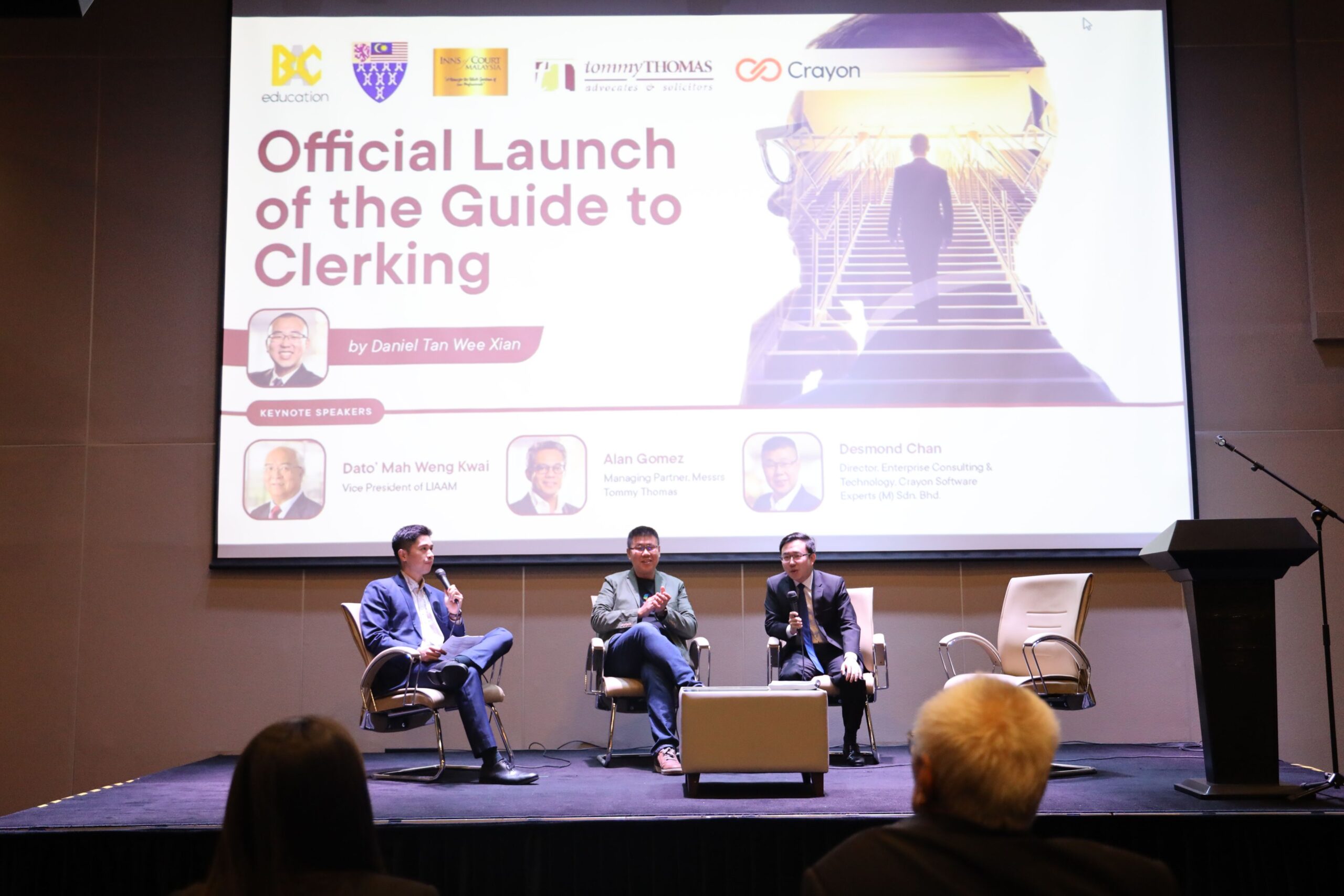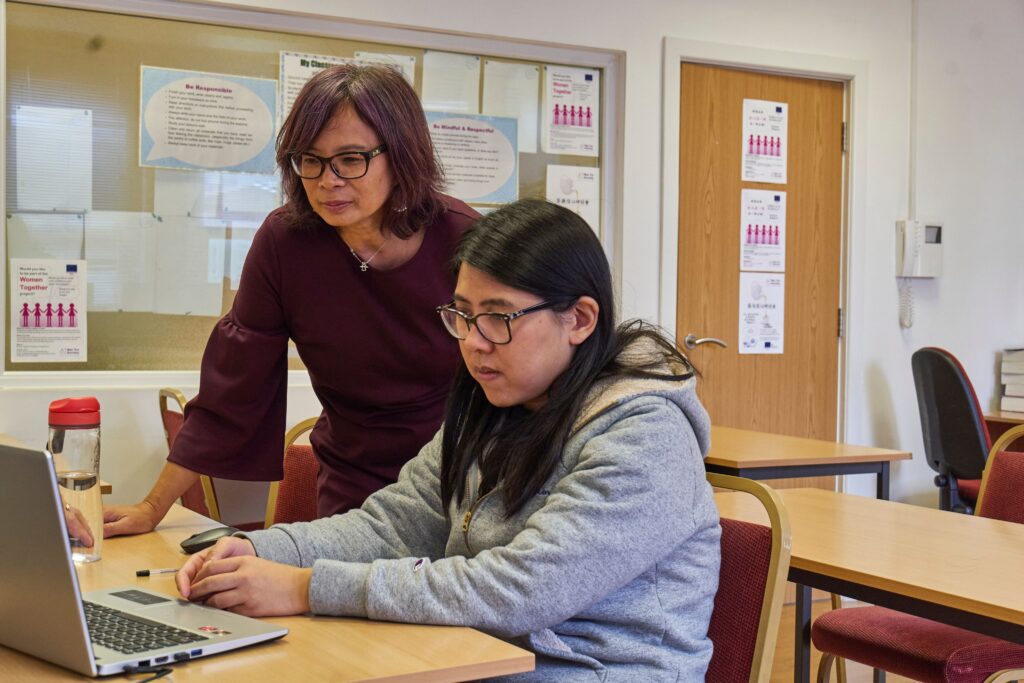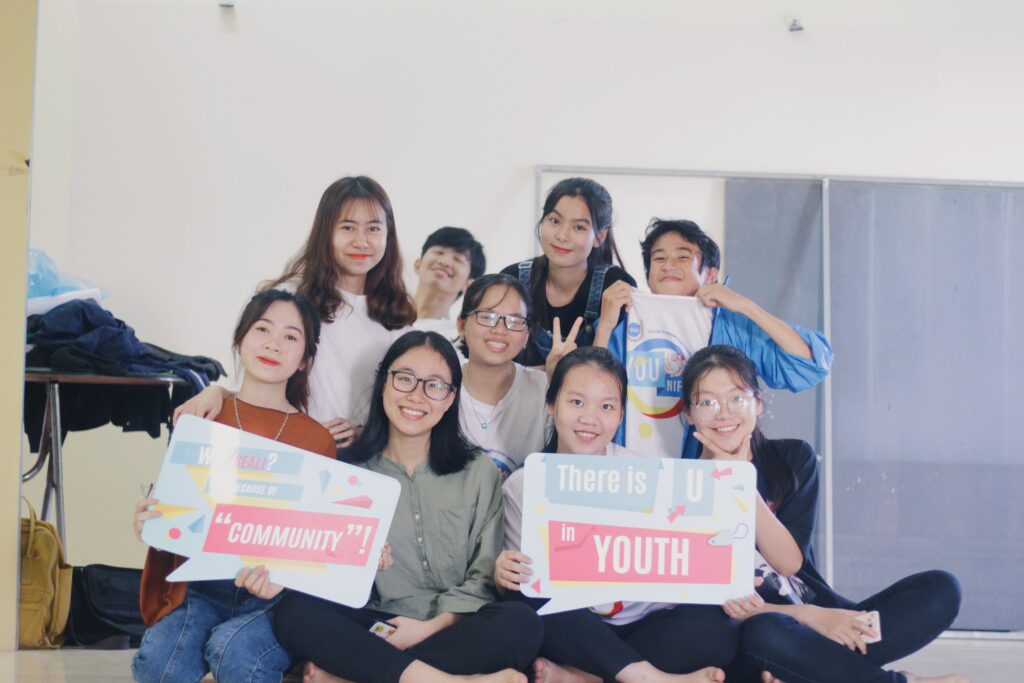More stories from Learning Lab
Gamescom 2025: A New Era for Indie Game Developers
A Beacon of Hope for Aspiring DevelopersView the story Gamescom 2025: A New Era for Indie Game Developers Joash Pandita The curtains have just closed on Gamescom 2025 in August, and one thing is clear, the future of gaming belongs…
How Technology is Reshaping the UK Legal Industry
Digitalisation of Legal ServicesView the story How Technology is Reshaping the UK Legal Industry Joash Pandita The Rise of Legal Technology Technology is evolving every industry, and the legal sector is not an exception. A recent report from The Law…
Why UK Law Degrees Continue to Attract Students Worldwide
Professional OpportunitiesView the story Why UK Law Degrees Continue to Attract Students Worldwide Joash Pandita A Globally Respected Legal System The UK has long been one of the most popular destinations for students pursuing law degrees, and its appeal shows…
How AI is Built: Part 2: The Software That Trains Intelligence
Training AIView the story How AI is Built: Part 2The Software That Trains Intelligence Joash Pandita Welcome back to the “How AI is Built” series! In Part 1 of this series, we explored the hardware side of AI. From the…
How AI is Built: Part 1:The Hardware That Powers Intelligence
Graphics Cards (GPUs)View the story How AI is Built: Part 1:The Hardware That Powers Intelligence Joash Pandita We have talked about how AI is changing this industry and that industry, how corporations and institutions will assimilate it into their organizations,…
The Games That Had It All…Until Launch Day
From Hype to HateView the story The Games That Had It All…Until Launch Day Joash Pandita When Hype Meets Harsh Reality History has shown us that a technically disastrous launch for a game can overshadow even the most exciting concepts….
Why Soft Skills Matter as Much as Hard Skills
Preparing for the FutureView the story Why Soft Skills Matter as Much as Hard Skills Joash Pandita It is very common for us Malaysians to think that preparing for their careers equals focus on technical knowledge: mastering the law, understanding…
Malaysia as a Rising Hub for Tech and Business Talent
Why are Global Giants Choosing Malaysia?View the story Malaysia as a Rising Hub for Tech and Business Talent Joash Pandita As many of you have read our previous stories, it is well known that Malaysia has been quietly but steadily…
The Rise of AI Regulation
What This Means for YouView the story The Rise of AI Regulation Joash Pandita AI isn’t leaving. We need to get used to that and that isn’t inherently a bad thing either. It is completely understandable to be wary of…
Landmark Antitrust Ruling Against Google: What It Means for Law and Business
Combine large, bold images with the beautifully crafted words of your story.View the story Landmark Antitrust Ruling Against Google: What It Means for Law and Business Joash Pandita In one of the most significant antitrust cases of the modern internet…
The Power of Observation: Understanding Child Behavior
Combine large, bold images with the beautifully crafted words of your story.View the story The Power of Observation: Understanding Child Behavior By Nash Nithi In early childhood education, one of the most powerful tools educators and caregivers have is simple…
The Hospitality Trends of 2025: What’s Changing – and Why Future Hoteliers Must Be Ready
What students learn View the story The Hospitality Trends of 2025 What’s Changing—and Why Future Hoteliers Must Be Ready By Nash Nithi The hospitality industry is evolving faster than ever. In 2025, travellers are looking for more than just a clean…
The Psychology of Doom Scrolling – Why We Can’t Stop and How It Affects Our Brain
Combine large, bold images with the beautifully crafted words of your story.View the story The Psychology of Doom Scrolling – Why We Can’t Stop and How It Affects Our Brain By Nash Nithi It starts innocently, just a quick glance…
Made in Malaysia: How Local Video Games Are Leveling Up the Industry
No Straight Roads (NSR) View the story Made in Malaysia: How Local Video Games Are Leveling Up the Industry By Nash Nithi The Malaysian video game industry is having a moment, and it’s only getting bigger. From indie success stories to…
Shaping Young Minds: What CoComelon Teaches Us
Combine large, bold images with the beautifully crafted words of your story.View the story Shaping Young Minds:What CoComelon Teaches Us By Nash Nithi If you’ve spent any time with a toddler lately, chances are you’ve heard the familiar jingles of…
Understanding Tariffs: What They Are and Why Business Students Must Pay Attention
1. Global Business Is Never Static View the story Understanding Tariffs: What They Are and Why Business Students Must Pay Attention By Nash Nithi A 25% tariff from the United States is about to hit Malaysian exports and the impact could…
Can AI Actually Help with Your Mental Well-being?
Combine large, bold images with the beautifully crafted words of your story.View the story Can AI Actually Help with Your Mental Well-being? By Chiew Chin Kent (Hayden) In today’s fast-paced world, it’s normal to feel a bit overwhelmed sometimes. While…
How Computing Powers Formula 1
Computing is Co-DriverView the story How Computing Powers Formula 1 Joash Pandita Nothing is better for us F1 fans than hearing those V6 1.6-liter V6 turbocharged engines roar past the straights. And while the engines may roar loudest on the…
Hotel Management and Diversity: How Inclusive Practices Are Shaping Modern Hospitality
1. Hiring Diverse Teams View the story Hotel Management and Diversity:How Inclusive Practices Are Shaping Modern Hospitality By Nash Nithi Hospitality is all about making people feel welcome. But in today’s world, that means more than just offering good service, it…
Global Hotel Trends: What’s Hot in Hospitality for 2026
1. Smart Rooms and Contactless Tech View the story Global Hotel Trends:What’s Hot in Hospitality for 2026 By Nash Nithi The hotel industry is always evolving, but 2026 is shaping up to be especially exciting. From smart technology to sustainable stays,…
What It’s Like to Be a Chef: Skills and Roles Beyond Cooking
1. Leadership and Team Management View the story What It’s Like to Be a Chef:Skills and Roles Beyond Cooking By Nash Nithi When people think of a chef, they often imagine someone in a white coat stirring sauces or expertly plating…
How PR Skills Can Land You a Job in Any Industry
1. Technology and Startups View the story How PR Skills Can Land You a Jobin Any Industry By Nash Nithi In today’s fast-paced and hyper-connected world, public relations (PR) skills are more valuable than ever, and not just in PR agencies….
Cool Skills You’ll Learn While Studying PR (That Go Way Beyond Writing)
1. Understanding the Media View the story Cool Skills You’ll Learn While Studying PR (That Go Way Beyond Writing) By Nash Nithi Public Relations (PR) is no longer just about writing press releases. In today’s digital world, PR professionals are content…
In the Shadows, a Star: Honouring Michael Madsen and the Power of Storytelling
Combine large, bold images with the beautifully crafted words of your story.View the story In the Shadows, a Star: Honouring Michael Madsen and the Power of Storytelling By Nash Nithi Michael Madsen never had to chase the spotlight, it found…
From Art School to Arena Shows: How My Chemical Romance’s Frontman Designed a Generation
Next Generation of CreativesView the story From Art School to Arena Shows: How My Chemical Romance’s Frontman Designed a Generation Joash Pandita My Chemical Romance is coming back to Malaysia! I don’t know about you but we certainly are excited….
Teaching with Heart: Nurturing Emotional and Social Skills
Combine large, bold images with the beautifully crafted words of your story.View the story Teaching with Heart: Nurturing Emotional and Social Skills By Nash Nithi In today’s fast-paced, achievement-focused world, it’s easy to focus solely on test scores, reading levels…
How Young Children Learn: Foundations of ECE Pedagogy
1. Child-Centred Learning View the story How Young Children Learn: Foundations of ECE Pedagogy By Nash Nithi In early childhood, learning is not about memorising facts or sitting still for long periods. Instead, it’s about exploration, discovery and meaningful interaction. The…
Nutrition 101: Fueling Growth in Early Childhood Education
Combine large, bold images with the beautifully crafted words of your story.View the story Nutrition 101: Fueling Growth in Early Childhood Education By Nash Nithi When we think about early childhood education, we often focus on reading skills, play-based learning…
Software Engineering 101: Breaking Down the Basics
1. Requirements Engineering View the story Software Engineering 101:Breaking Down the Basics By Nash Nithi In a world where digital innovation drives everything—from online shopping to healthcare systems—software engineering has become one of the most critical fields in the IT industry….
You Played the Game. Now Build One.
1. Game Design View the story You Played the Game. Now Build One. By Nash Nithi If you’ve ever spent hours immersed in a game world, whether it’s battling zombies, solving puzzles or building cities you’ve likely thought, “Wouldn’t it be…
Hospitality Entrepreneurship: How to Start Your Own Boutique Hotel or B&B
1. Get the Right Education View the story Hospitality Entrepreneurship: How to Start Your Own Boutique Hotel or B&B By Nash Nithi Dreaming of owning a charming boutique hotel or a cozy bed and breakfast (B&B)? You’re not alone. More and…
The Rise of Wellness Tourism: How Hotel Management Is Adapting to Health and Wellness Trends
1. Wellness-Focused Facilities View the story The Rise of Wellness Tourism: How Hotel Management Is Adapting to Health and Wellness Trends By Nash Nithi Travel today is about more than just seeing new places. More and more people are traveling to…
Culinary Arts as a Path to Social Impact: How Chefs Are Leading Change in Communities
Combine large, bold images with the beautifully crafted words of your story.View the story Culinary Arts as a Path to Social Impact: How Chefs Are Leading Change in Communities By Nash Nithi The world is starting to see chefs as…
Digital Disruption: Preparing Students for the Future of Finance & Accounting
BA (Hons) Accounting & Finance (Conventional) View the story Digital Disruption: Preparing Students for the Future of Finance & Accounting By Nash Nithi The finance and accounting industry is changing fast. Technology is no longer just a helpful tool. It’s completely…
Gen Z and PR: Why Your Voice Matters in the Industry
Combine large, bold images with the beautifully crafted words of your story.View the story Gen Z and PR: Why Your Voice Matters in the Industry By Nash Nithi In today’s fast-changing digital landscape, one truth stands out: Gen Z is…
The New Face of Investigative Journalism: Using Data and Digital Tools to Uncover the Truth
Combine large, bold images with the beautifully crafted words of your story.View the story The New Face of Investigative Journalism: Using Data and Digital Tools to Uncoverthe Truth By Nash Nithi Investigative journalism has always been about digging deep, asking…
How Virtual Worlds Are Changing the Way We Consume Content
1. More Immersive Storytelling View the story How Virtual Worlds Are Changing the Way We Consume Content By Nash Nithi In the digital age, content is no longer limited to flat screens and static platforms. Welcome to the era of virtual…
Going Viral: The Art and Science of Creating Content That Speaks to the Masses
1. Emotion is Everything View the story Going Viral: The Art and Science of Creating Content That Speaks to the Masses By Nash Nithi In a world where content floods our feeds every second, standing out takes more than just creativity….
How PR Professionals Are Building Trust in 2025
1. Radical Transparency View the story How PR Professionals Are Building Trust in 2025 By Nash Nithi In an era marked by misinformation, algorithm-driven outrage and rapidly evolving technology, trust is the new currency. For Public Relations (PR) professionals in 2025,…
Virtual Production, Drones & 8K: The Tech Revolution in Film
Diploma in Broadcasting & FilmView the story Virtual Production, Drones & 8K: The Tech Revolution in Film By Nash Nithi Film production is entering a new era, and virtual production is leading the charge. By combining real-time visual effects, LED…
Why a Degree in Business Administration Opens Every Door
Combine large, bold images with the beautifully crafted words of your story.View the story Why a Degree in Business Administration Opens Every Door By Nash Nithi If you’re not 100% sure what you want to do in the future, but…
From Currency Wars to Climate Trade: Why the World Needs More Economic Experts
Combine large, bold images with the beautifully crafted words of your story.View the story From Currency Wars to Climate Trade: Why the World Needs More Economic Experts By Nash Nithi Why are fuel prices going up? Why are some countries…
From TikTok to Boardroom: How Marketing Skills Are Shaping Tomorrow’s Leaders
Combine large, bold images with the beautifully crafted words of your story.View the story From TikTok to Boardroom: How Marketing Skills Are Shaping Tomorrow’s Leaders By Nash Nithi Marketing has changed, and so has business. Today, it’s not just about…
Why Great Managers Think Like Marketers: The Secret to Career Success
1. People-First Thinking View the story Why Great Managers Think Like Marketers: The Secret to Career Success By Nash Nithi Want to be a great manager? Learn to think like a marketer. It might sound surprising, but in today’s world,…
How Nvidia and MediaTek Are Building the Future of Gaming Laptops
Why This Matters for Game DevelopersView the story How Nvidia and MediaTek Are Building the Future of Gaming Laptops Joash Pandita We all love our clunky, hot, heavy, and not exactly what you’d call power-efficient machines that are gaming laptops….
Indie Games Achieving Blockbuster Success! Here’s Why
Shifting Investment and Development ModelsView the story Indie Games Achieving Blockbuster Success! Here’s Why The Underdog Tale Joash Pandita The last few years has seen something extraordinary within the video game industry. It is more like a shift and that…
Google Opens Malaysia’s First Data Centre! What to Expect
Fueling Economic Development and InnovationView the story Google Opens Malaysia’s First Data Centre! What to Expect Joash Pandita A Technological Landmark for Malaysia Google’s announcement of its first-ever data centre and Google Cloud region in Malaysia signals a major milestone…
Intel Expands Semiconductor Manufacturing in Malaysia!
Big Growth Coming UpView the story Intel Expands Semiconductor Manufacturing in Malaysia! What’s Next? Joash Pandita Lifting Malaysia’s Tech Standing Ever since Intel’s advanced packaging facility being established in Penang, Malaysia has seen a boost up the semiconductor supply chain….
Microsoft Launches Cloud Region in Malaysia: What It Means for Students in AI and Tech
A Surge in Demand for Cloud and AI TalentView the story Microsoft Launches Cloud Region in Malaysia: What It Means for Students in AI and Tech Joash Pandita What Is a Cloud Region, and Why Should You Care? This is…
Google’s Fastest AI Yet with Gemini 1.5
Combine large, bold images with the beautifully crafted words of your story.View the story Google’s Fastest AI Yet with Gemini 1.5 Joash Pandita What Sets Gemini 1.5 Apart Google’s Gemini has quickly been rising among the tech horizon and understandably…
What is Google’s Project Astra (And Why It’s a Big Deal)
Why This Matters to YouView the story What is Google’s Project Astra (And Why It’s a Big Deal) Joash Pandita AI is continuing to boom and if you think it has peaked already? Well, you are sorely mistaken! That is…
Google’s New AI Mode for Search Is Here – What It Means for You
How AI Mode WorksView the story Google’s New AI Mode for Search Is Here – What It Means for You Joash Pandita AI Mode: Search Reimagined If you thought Google Search had already reached its peak, think again. At the…
Responsible Gen AI Use: AI vs Mental Health Professionals
It can’t pinpoint what’s really going onView the story Responsible Gen AI Use:AI vs Mental Health Professionals By Chiew Chin Kent (Hayden) Generative AI is a powerful tool. It can help you organise your thoughts, explain psychological concepts and even…
Film’s New Frontier: Artificial Intelligence as a Director’s Best Friend
1. Scriptwriting Assistance View the story Film’s New Frontier: Artificial Intelligence as a Director’s Best Friend By Nash Nithi The film industry has always been a playground for innovation, from the first silent movies to CGI-driven blockbusters. But in 2025, a…
Not Just Filmmaking – Learn Directing, Editing, Sound and More!
Diploma in Broadcasting & FilmView the story Not Just Filmmaking – Learn Directing, Editing, Sound and More! By Nash Nithi When you think of film school, what comes to mind? Big cameras, movie sets, and someone yelling “Action!” But today’s…
Building a Student Portfolio: Learning to Invest with Confidence
Start Small and Be Consistent View the story Building a Student Portfolio:Learning to Invest with Confidence By Nash Nithi Investing might seem like something reserved for adults with full-time jobs. But the truth is, students can, and should, start early. Learning…
Top 10 Skills You’ll Learn While Studying Accounting & Finance
1. Financial Reporting & Analysis View the story Top 10 Skills You’ll Learn While Studying Accounting & Finance By Nash Nithi Choosing to study Accounting & Finance opens the door to more than just numbers and spreadsheets. It equips you with…
Psychology Careers You’ve Never Heard Of
1. Consumer Psychologist View the story Psychology Careers You’ve Never Heard Of By Nash Nithi When you hear “psychologist,” do you picture someone in an office, helping patients talk through their problems? That’s just one part of the field. In reality,…
Why the Study of Psychology Is More Important Than Ever
1. Mental Health Is a Global Priority View the story Why the Study of Psychology Is More Important Than Ever By Nash Nithi In today’s fast-paced, always-connected world, understanding human behavior isn’t just useful, it’s essential. From managing stress to navigating…
How Accurate is “The Bear”?
Intensity and Stress: Art Imitating LifeView the story How Accurate is “The Bear“? Joash Pandita FX’s ‘The Bear’ has become a worldwide hit. Delving deep into the culinary world and its complex environment. Touching on the beautiful aspects but also…
What It Takes to Earn a Michelin Star
The History Behind the StarsView the story What It Takes to Earn a Michelin Star Joash Pandita The goldest of stars. The crème de la crème of culinary awards. Chefs across the world spend an entire career’s worth of time…
Food Waste Management in the Kitchen: Reducing, Reusing and Recycling for a Sustainable Future
1. Reduce: Buy Smart, Cook Smart View the story Food Waste Management in the Kitchen: Reducing, Reusing and Recycling for a Sustainable Future By Nash Nithi In kitchens all around the world, from fine-dining restaurants to home cooktops, food waste is…
The Growing Trend of Experiential Dining and Food Travel
1. Global Cuisine Training View the story The Growing Trend ofExperiential Dining and Food Travel By Nash Nithi In today’s world, food is more than just fuel. It’s an adventure. From rooftop farm dinners in New York to night markets in…
The Importance of Plating and Food Presentation: Turning a Meal Into an Art
1. Balance of Colour and Texture View the story The Importance of Plating and Food Presentation: Turning a Meal Into an Art By Nash Nithi We eat with our eyes first. Before the first bite reaches your mouth, you’ve already started…
SPM Result Day Survival Guide: Emotions, Options & Moving Forward
Combine large, bold images with the beautifully crafted words of your story.View the story SPM Result Day Survival Guide:Emotions, Options & Moving Forward By Nash Nithi SPM results day can hit differently for everyone. Maybe you’re thrilled, maybe you’re disappointed…
Social Media Tourism: How Influencers are Shaping Malaysia’s Travel Industry
How Social Media Influences Travel Decisions: View the story Social Media Tourism: How Influencers are Shaping Malaysia’s Travel Industry By Nash Nithi Social media has revolutionised the way people travel, plan vacations and experience new destinations. Platforms like Instagram, TikTok and…
The MM2H Revival: What Malaysia’s Second Home Programme Means for Tourism
References View the story The MM2H Revival: What Malaysia’s Second Home Programme Means for Tourism By Nash Nithi Malaysia My Second Home (MM2H) is a long-term visa programme designed to attract foreign retirees, investors and expatriates to settle in Malaysia. After…
Virtual Reality Tours: The Future of Malaysian Heritage Sites
Key Advantages of VR for Malaysian Heritage Sites: View the story Virtual Reality Tours: The Future of Malaysian Heritage Sites By Nash Nithi In an era where technology is reshaping every aspect of travel, Virtual Reality (VR) tours have emerged as…
From Burnout to Balance: Reimagining Workplace Mental Health
Reimagining Workplace Mental Health View the story From Burnout to Balance: Reimagining Workplace Mental Health By Nash Nithi The Growing Crisis of Workplace Burnout Workplace burnout has become an alarming crisis in today’s fast-paced world. Employees across various industries face mounting…
Minds Without Borders: The Rise of Global Psychology Collaborations
The Role of Technology in Psychological Collaboration View the story Minds Without Borders: The Rise of Global Psychology Collaborations By Nash Nithi Breaking Down Barriers in Psychological Research The field of psychology has traditionally been shaped by cultural perspectives and localised…
Beyond Cultural Competence: Redefining Inclusivity in Psychological Practice
Redefining Inclusivity in Practice View the story Beyond Cultural Competence: Redefining Inclusivity in Psychological Practice By Nash Nithi The Evolving Landscape of Psychological Inclusivity Cultural competence has long been a cornerstone of effective psychological practice, emphasising the need for practitioners to…
Couch to Click: The Digital Transformation of Therapy
References View the story Couch to Click: The Digital Transformation of Therapy By Nevash N The Shift to Digital Mental Health Care The landscape of therapy is undergoing a seismic shift. What was once confined to the therapist’s couch is now…
How to Break into the Hospitality Industry
View the story How to Break into the Hospitality Industry It’s always a little daunting to take the first step in pursuing a career in Hospitality. By now, most of you understand that starting a job search in any industry…
The Skills You Will Learn
The Skills You Will LearnView the story The Skills You Will Learn A business undergraduate degree is basically the learning of a set of transferable skills to give you an excellent foundation for many careers to ensure success. Broad based…
Why Study Business
Business, as we know it, has changed beyond our imaginations. This is exactly why aspiring innovators and visionaries, such as yourself, should be equipped with the relevant skills and knowledge to navigate through this new normal in the world of…
Choosing The Right Institution (Business)
Choosing The Right InstitutionView the story Choosing The Right Institution Becoming a successful business person is a journey that requires passion, dedication, hard work and patience. The first step to becoming a great business person is choosing the right institution….
Common Business Career Options
Common Business Career OptionsView the story Common Business Career Options Accountant Administrative Services Manager Advertising Manager Auditor Banking Operations Manager Brand Consultant Broadcast News Analyst Chief Executive Officer Chief Financial Officer Chief Information Officer Chief Operating Officer Chief Sustainability OfficerCorporate Communications Director Distribution and Logistics Manager Economist Events Manager Financial Manager General Manager Image captions Human…
18 Reasons to Study Business
18 Reasons to Study BusinessView the story 18 Reasons to Study Business Augments independent thinking and analytical skillsBusiness graduates are innovators and entrepreneursBusiness is both a theoretical and a practical disciplineCritical thinking skills developed in business are highly valued by…
Do You Have What It Takes To Tackle A Business?
Do You Have What It Takes To Tackle A Business?View the story Do You Have What It Takes To Tackle A Business? Being successful in the business environment takes special skills. These skills may be developed before entering the global…
Cybercrime in Malaysia: How the 2024 Penal Code Amendments Protect You
ReferencesView the story Cybercrime in Malaysia: How the 2024 Penal Code Amendments Protect You By Nash Nithi Imagine scrolling through your phone one evening, only to realise your bank account has been drained or your private information is circulating online…
I’ve Completed My Law Degree- What Next?
If you are still unsure of your next steps after a Law degree, read on to check out some of options.View the story I’ve Completed My Law Degree-What Next? Certificate in Legal Practice (CLP) Worth Considering If: You are a…
5 Instagram Accounts to Follow for Design Inspiration
As aspiring design students, be it graphic design or other forms of visual arts, it never hurts to seek inspiration around you. View the story 5 Instagram Accounts to Follow for Design Inspiration Many of us spend hours scrolling through…
How To Create An Impressive Digital Portfolio
A digital portfolio is a great way to showcase your skills and collection of works to prospective employers. Check out how you can take your digital portfolio to the next level!View the story How To Create An Impressive Digital Portfolio…
Parents as Partners
View the story Parents as Partners By Azura Abrasid, Head of Early Childhood Education Programmes, Veritas University College. First published in the Global School Leadership Magazine, CCE Finland, Issue No. 1, 21st April, 2022 How would you define ‘parents as partners’…
Unlocking the True Value of Early Childhood Educators: Beyond the Label of Glorified Babysitter
View the story Unlocking the True Value of Early Childhood Educators: Beyond the Label of a ‘Glorified’ Babysitter By Azura Abrasid, Head of Early Childhood Education Programmes, Veritas University College When we think of early childhood educators, it’s easy to conjure…
Why Study Design?
View the story Why Study Design? Design is all around us, from the products we use to the ads we see. It is the process of creating something new and innovative that meets the needs of people. The study of…
Why Study Communications?
Why Study Communications?View the story Why Study Communications? Communication is the process of exchanging information, ideas, and thoughts between individuals or groups. It is a fundamental human activity that is essential for our everyday lives. Communication is the foundation of…
Why Study Film?
Why Study Film?View the story Why Study Film? Movies have been a part of our lives for over a century now, and they have become an art form that holds a significant place in our culture. Films are a reflection…
Why is Early Childhood Education Underrepresented in Tertiary Education?
View the story Why is Early Childhood Education Underrepresented in Tertiary Education? By Azura Abrasid (Head of Early Childhood Education Programme, Veritas University College) Early Childhood Education (ECE) is a crucial period of development that lays the foundation for a…
Leading the Early Childhood Industry with Grace
View the story Leading the Early Childhood Education Industry with Grace By Azura Abrasid (Head of Early Childhood Education Programmes, Veritas University College) Over the span of more than two decades immersed in the field of Early Childhood Education, my…
Why Hospitality is an Underrated Industry
A $4.7 Trillion Dollar Industry to Become a $5.8 Trillion Dollars by 2027 View the story Why Hospitality is an Underrated Industry A $4.7 Trillion Dollar Industry to Become a $5.8 Trillion Dollars by 2027 By Joash Pandita With the…
How Music Affects Films
View the story How Music Affects Films By Joash Pandita Films aren’t just made by good actors and a well-written script alone. It’s made by its score, its music! When you think of film scores, these 5 probably come to…
Project Management Tips
A guide to effective teamwork View the story Project Management Tips A guide to effective teamwork By Nishant Thomas Philip We are exposed to the concept of teamwork from a very early age, going back as early as kindergarten days….
Engaging the Minds of Students
Keys to maintaining attention in a classroom View the story Engaging the Minds of Students Keys to maintaining attention in a classroom By Nishant Thomas Philip Knowledge is power. Guard it well. Maintaining student attention in the classroom has become…
Understanding the Mind:
Compelling Reasons to Study PsychologyView the story Understanding the Mind Compelling Reasons to Study Psychology By Nishant Philip Thomas Imagine yourself being able to decipher the complexities of human behaviour, understand the underlying motives behind actions, and communicating with unparalleled…
Top 3 Sustainable Living Tips for Students
View the story Top 3 Sustainable Living Tips for Students By Joash Pandita Tip 1: Embrace Minimalism Embracing minimalism in your daily life goes beyond the mere act of owning fewer things; it’s a profound shift towards valuing experiences and…
Student Entrepreneurship: Unleashing Innovation on Campus
View the story Student Entrepreneurship:Unleashing Innovation on Campus By Nash Nithi In today’s rapidly evolving world, student entrepreneurship stands as a beacon of innovation, resilience, and boundless potential. Gone are the days when career paths were linear and conventional. Now,…
Ethical Hacking:Learning How to Protect Systems through Weaknesses
View the story Ethical Hacking:Learning How to Protect Systems through Weaknesses By Nash Nithi In today’s digital age, the importance of cybersecurity cannot be overstated. With the increasing frequency and sophistication of cyberattacks, organisations are in a constant battle to…
Cyber Threats:How to Spot and Stop Them
View the story Cyber Threats:How to Spot and Stop Them By Nash Nithi In an era where our lives are increasingly intertwined with digital platforms, the significance of cybersecurity is more pronounced than ever. Cyber threats are evolving at a…
Blockchain Basics:Understanding HowCryptocurrencyStays Secure
View the story Blockchain Basics:Understanding HowCryptocurrencyStays Secure By Nash Nithi Cryptocurrencies like Bitcoin and Ethereum have revolutionised the financial landscape, introducing an entirely new way of thinking about money and digital assets. At the heart of cryptocurrency technology is blockchain,…
Visual Media:Using Pictures and Videos to Communicate
View the story Visual Media:Using Pictures and Videos to Communicate By Nash Nithi In our increasingly digital world, visual media has become a vital tool for communication. From marketing campaigns to news broadcasts, pictures and videos are now integral to…
Digital Reporting:Telling Stories and Reporting News Online
View the story Digital Reporting:Telling Stories and Reporting News Online By Nash Nithi In the digital age, the landscape of journalism has undergone a profound transformation. Digital reporting has not only changed how news is delivered but has also reshaped…
Public Relations:Managing a Company’s Image
View the story Public Relations:Managing a Company’s Image By Nash Nithi In the competitive business landscape, public relations (PR) play a crucial role in shaping the perception and reputation of a company. Effective PR strategies help businesses communicate with their…
Official Launch of the Guide to Clerking
Combine large, bold images with the beautifully crafted words of your story.View the story Official Launch of the Guide to Clerking By Joash Pandita Starting Strong This new year, the legal community in Malaysia witnessed a significant milestone with the…
Gamescom 2025: A New Era for Indie Game Developers
A Beacon of Hope for Aspiring DevelopersView the story Gamescom 2025: A New Era for Indie Game Developers Joash Pandita The curtains have just closed on Gamescom 2025 in August, and one thing is clear, the future of gaming belongs…
How Technology is Reshaping the UK Legal Industry
Digitalisation of Legal ServicesView the story How Technology is Reshaping the UK Legal Industry Joash Pandita The Rise of Legal Technology Technology is evolving every industry, and the legal sector is not an exception. A recent report from The Law…
Why UK Law Degrees Continue to Attract Students Worldwide
Professional OpportunitiesView the story Why UK Law Degrees Continue to Attract Students Worldwide Joash Pandita A Globally Respected Legal System The UK has long been one of the most popular destinations for students pursuing law degrees, and its appeal shows…
How AI is Built: Part 2: The Software That Trains Intelligence
Training AIView the story How AI is Built: Part 2The Software That Trains Intelligence Joash Pandita Welcome back to the “How AI is Built” series! In Part 1 of this series, we explored the hardware side of AI. From the…
How AI is Built: Part 1:The Hardware That Powers Intelligence
Graphics Cards (GPUs)View the story How AI is Built: Part 1:The Hardware That Powers Intelligence Joash Pandita We have talked about how AI is changing this industry and that industry, how corporations and institutions will assimilate it into their organizations,…
The Games That Had It All…Until Launch Day
From Hype to HateView the story The Games That Had It All…Until Launch Day Joash Pandita When Hype Meets Harsh Reality History has shown us that a technically disastrous launch for a game can overshadow even the most exciting concepts….
Why Soft Skills Matter as Much as Hard Skills
Preparing for the FutureView the story Why Soft Skills Matter as Much as Hard Skills Joash Pandita It is very common for us Malaysians to think that preparing for their careers equals focus on technical knowledge: mastering the law, understanding…
Malaysia as a Rising Hub for Tech and Business Talent
Why are Global Giants Choosing Malaysia?View the story Malaysia as a Rising Hub for Tech and Business Talent Joash Pandita As many of you have read our previous stories, it is well known that Malaysia has been quietly but steadily…
The Rise of AI Regulation
What This Means for YouView the story The Rise of AI Regulation Joash Pandita AI isn’t leaving. We need to get used to that and that isn’t inherently a bad thing either. It is completely understandable to be wary of…
Landmark Antitrust Ruling Against Google: What It Means for Law and Business
Combine large, bold images with the beautifully crafted words of your story.View the story Landmark Antitrust Ruling Against Google: What It Means for Law and Business Joash Pandita In one of the most significant antitrust cases of the modern internet…
The Power of Observation: Understanding Child Behavior
Combine large, bold images with the beautifully crafted words of your story.View the story The Power of Observation: Understanding Child Behavior By Nash Nithi In early childhood education, one of the most powerful tools educators and caregivers have is simple…
The Hospitality Trends of 2025: What’s Changing – and Why Future Hoteliers Must Be Ready
What students learn View the story The Hospitality Trends of 2025 What’s Changing—and Why Future Hoteliers Must Be Ready By Nash Nithi The hospitality industry is evolving faster than ever. In 2025, travellers are looking for more than just a clean…
The Psychology of Doom Scrolling – Why We Can’t Stop and How It Affects Our Brain
Combine large, bold images with the beautifully crafted words of your story.View the story The Psychology of Doom Scrolling – Why We Can’t Stop and How It Affects Our Brain By Nash Nithi It starts innocently, just a quick glance…
Made in Malaysia: How Local Video Games Are Leveling Up the Industry
No Straight Roads (NSR) View the story Made in Malaysia: How Local Video Games Are Leveling Up the Industry By Nash Nithi The Malaysian video game industry is having a moment, and it’s only getting bigger. From indie success stories to…
Shaping Young Minds: What CoComelon Teaches Us
Combine large, bold images with the beautifully crafted words of your story.View the story Shaping Young Minds:What CoComelon Teaches Us By Nash Nithi If you’ve spent any time with a toddler lately, chances are you’ve heard the familiar jingles of…
Understanding Tariffs: What They Are and Why Business Students Must Pay Attention
1. Global Business Is Never Static View the story Understanding Tariffs: What They Are and Why Business Students Must Pay Attention By Nash Nithi A 25% tariff from the United States is about to hit Malaysian exports and the impact could…
Can AI Actually Help with Your Mental Well-being?
Combine large, bold images with the beautifully crafted words of your story.View the story Can AI Actually Help with Your Mental Well-being? By Chiew Chin Kent (Hayden) In today’s fast-paced world, it’s normal to feel a bit overwhelmed sometimes. While…
How Computing Powers Formula 1
Computing is Co-DriverView the story How Computing Powers Formula 1 Joash Pandita Nothing is better for us F1 fans than hearing those V6 1.6-liter V6 turbocharged engines roar past the straights. And while the engines may roar loudest on the…
Hotel Management and Diversity: How Inclusive Practices Are Shaping Modern Hospitality
1. Hiring Diverse Teams View the story Hotel Management and Diversity:How Inclusive Practices Are Shaping Modern Hospitality By Nash Nithi Hospitality is all about making people feel welcome. But in today’s world, that means more than just offering good service, it…
Global Hotel Trends: What’s Hot in Hospitality for 2026
1. Smart Rooms and Contactless Tech View the story Global Hotel Trends:What’s Hot in Hospitality for 2026 By Nash Nithi The hotel industry is always evolving, but 2026 is shaping up to be especially exciting. From smart technology to sustainable stays,…
What It’s Like to Be a Chef: Skills and Roles Beyond Cooking
1. Leadership and Team Management View the story What It’s Like to Be a Chef:Skills and Roles Beyond Cooking By Nash Nithi When people think of a chef, they often imagine someone in a white coat stirring sauces or expertly plating…
How PR Skills Can Land You a Job in Any Industry
1. Technology and Startups View the story How PR Skills Can Land You a Jobin Any Industry By Nash Nithi In today’s fast-paced and hyper-connected world, public relations (PR) skills are more valuable than ever, and not just in PR agencies….
Cool Skills You’ll Learn While Studying PR (That Go Way Beyond Writing)
1. Understanding the Media View the story Cool Skills You’ll Learn While Studying PR (That Go Way Beyond Writing) By Nash Nithi Public Relations (PR) is no longer just about writing press releases. In today’s digital world, PR professionals are content…
In the Shadows, a Star: Honouring Michael Madsen and the Power of Storytelling
Combine large, bold images with the beautifully crafted words of your story.View the story In the Shadows, a Star: Honouring Michael Madsen and the Power of Storytelling By Nash Nithi Michael Madsen never had to chase the spotlight, it found…
From Art School to Arena Shows: How My Chemical Romance’s Frontman Designed a Generation
Next Generation of CreativesView the story From Art School to Arena Shows: How My Chemical Romance’s Frontman Designed a Generation Joash Pandita My Chemical Romance is coming back to Malaysia! I don’t know about you but we certainly are excited….
Teaching with Heart: Nurturing Emotional and Social Skills
Combine large, bold images with the beautifully crafted words of your story.View the story Teaching with Heart: Nurturing Emotional and Social Skills By Nash Nithi In today’s fast-paced, achievement-focused world, it’s easy to focus solely on test scores, reading levels…
How Young Children Learn: Foundations of ECE Pedagogy
1. Child-Centred Learning View the story How Young Children Learn: Foundations of ECE Pedagogy By Nash Nithi In early childhood, learning is not about memorising facts or sitting still for long periods. Instead, it’s about exploration, discovery and meaningful interaction. The…
Nutrition 101: Fueling Growth in Early Childhood Education
Combine large, bold images with the beautifully crafted words of your story.View the story Nutrition 101: Fueling Growth in Early Childhood Education By Nash Nithi When we think about early childhood education, we often focus on reading skills, play-based learning…
Software Engineering 101: Breaking Down the Basics
1. Requirements Engineering View the story Software Engineering 101:Breaking Down the Basics By Nash Nithi In a world where digital innovation drives everything—from online shopping to healthcare systems—software engineering has become one of the most critical fields in the IT industry….
You Played the Game. Now Build One.
1. Game Design View the story You Played the Game. Now Build One. By Nash Nithi If you’ve ever spent hours immersed in a game world, whether it’s battling zombies, solving puzzles or building cities you’ve likely thought, “Wouldn’t it be…
Hospitality Entrepreneurship: How to Start Your Own Boutique Hotel or B&B
1. Get the Right Education View the story Hospitality Entrepreneurship: How to Start Your Own Boutique Hotel or B&B By Nash Nithi Dreaming of owning a charming boutique hotel or a cozy bed and breakfast (B&B)? You’re not alone. More and…
The Rise of Wellness Tourism: How Hotel Management Is Adapting to Health and Wellness Trends
1. Wellness-Focused Facilities View the story The Rise of Wellness Tourism: How Hotel Management Is Adapting to Health and Wellness Trends By Nash Nithi Travel today is about more than just seeing new places. More and more people are traveling to…
Culinary Arts as a Path to Social Impact: How Chefs Are Leading Change in Communities
Combine large, bold images with the beautifully crafted words of your story.View the story Culinary Arts as a Path to Social Impact: How Chefs Are Leading Change in Communities By Nash Nithi The world is starting to see chefs as…
Digital Disruption: Preparing Students for the Future of Finance & Accounting
BA (Hons) Accounting & Finance (Conventional) View the story Digital Disruption: Preparing Students for the Future of Finance & Accounting By Nash Nithi The finance and accounting industry is changing fast. Technology is no longer just a helpful tool. It’s completely…
Gen Z and PR: Why Your Voice Matters in the Industry
Combine large, bold images with the beautifully crafted words of your story.View the story Gen Z and PR: Why Your Voice Matters in the Industry By Nash Nithi In today’s fast-changing digital landscape, one truth stands out: Gen Z is…
The New Face of Investigative Journalism: Using Data and Digital Tools to Uncover the Truth
Combine large, bold images with the beautifully crafted words of your story.View the story The New Face of Investigative Journalism: Using Data and Digital Tools to Uncoverthe Truth By Nash Nithi Investigative journalism has always been about digging deep, asking…
How Virtual Worlds Are Changing the Way We Consume Content
1. More Immersive Storytelling View the story How Virtual Worlds Are Changing the Way We Consume Content By Nash Nithi In the digital age, content is no longer limited to flat screens and static platforms. Welcome to the era of virtual…
Going Viral: The Art and Science of Creating Content That Speaks to the Masses
1. Emotion is Everything View the story Going Viral: The Art and Science of Creating Content That Speaks to the Masses By Nash Nithi In a world where content floods our feeds every second, standing out takes more than just creativity….
How PR Professionals Are Building Trust in 2025
1. Radical Transparency View the story How PR Professionals Are Building Trust in 2025 By Nash Nithi In an era marked by misinformation, algorithm-driven outrage and rapidly evolving technology, trust is the new currency. For Public Relations (PR) professionals in 2025,…
Virtual Production, Drones & 8K: The Tech Revolution in Film
Diploma in Broadcasting & FilmView the story Virtual Production, Drones & 8K: The Tech Revolution in Film By Nash Nithi Film production is entering a new era, and virtual production is leading the charge. By combining real-time visual effects, LED…
Why a Degree in Business Administration Opens Every Door
Combine large, bold images with the beautifully crafted words of your story.View the story Why a Degree in Business Administration Opens Every Door By Nash Nithi If you’re not 100% sure what you want to do in the future, but…
From Currency Wars to Climate Trade: Why the World Needs More Economic Experts
Combine large, bold images with the beautifully crafted words of your story.View the story From Currency Wars to Climate Trade: Why the World Needs More Economic Experts By Nash Nithi Why are fuel prices going up? Why are some countries…
From TikTok to Boardroom: How Marketing Skills Are Shaping Tomorrow’s Leaders
Combine large, bold images with the beautifully crafted words of your story.View the story From TikTok to Boardroom: How Marketing Skills Are Shaping Tomorrow’s Leaders By Nash Nithi Marketing has changed, and so has business. Today, it’s not just about…
Why Great Managers Think Like Marketers: The Secret to Career Success
1. People-First Thinking View the story Why Great Managers Think Like Marketers: The Secret to Career Success By Nash Nithi Want to be a great manager? Learn to think like a marketer. It might sound surprising, but in today’s world,…
How Nvidia and MediaTek Are Building the Future of Gaming Laptops
Why This Matters for Game DevelopersView the story How Nvidia and MediaTek Are Building the Future of Gaming Laptops Joash Pandita We all love our clunky, hot, heavy, and not exactly what you’d call power-efficient machines that are gaming laptops….
Indie Games Achieving Blockbuster Success! Here’s Why
Shifting Investment and Development ModelsView the story Indie Games Achieving Blockbuster Success! Here’s Why The Underdog Tale Joash Pandita The last few years has seen something extraordinary within the video game industry. It is more like a shift and that…
Google Opens Malaysia’s First Data Centre! What to Expect
Fueling Economic Development and InnovationView the story Google Opens Malaysia’s First Data Centre! What to Expect Joash Pandita A Technological Landmark for Malaysia Google’s announcement of its first-ever data centre and Google Cloud region in Malaysia signals a major milestone…
Intel Expands Semiconductor Manufacturing in Malaysia!
Big Growth Coming UpView the story Intel Expands Semiconductor Manufacturing in Malaysia! What’s Next? Joash Pandita Lifting Malaysia’s Tech Standing Ever since Intel’s advanced packaging facility being established in Penang, Malaysia has seen a boost up the semiconductor supply chain….
Microsoft Launches Cloud Region in Malaysia: What It Means for Students in AI and Tech
A Surge in Demand for Cloud and AI TalentView the story Microsoft Launches Cloud Region in Malaysia: What It Means for Students in AI and Tech Joash Pandita What Is a Cloud Region, and Why Should You Care? This is…
Google’s Fastest AI Yet with Gemini 1.5
Combine large, bold images with the beautifully crafted words of your story.View the story Google’s Fastest AI Yet with Gemini 1.5 Joash Pandita What Sets Gemini 1.5 Apart Google’s Gemini has quickly been rising among the tech horizon and understandably…
What is Google’s Project Astra (And Why It’s a Big Deal)
Why This Matters to YouView the story What is Google’s Project Astra (And Why It’s a Big Deal) Joash Pandita AI is continuing to boom and if you think it has peaked already? Well, you are sorely mistaken! That is…
Google’s New AI Mode for Search Is Here – What It Means for You
How AI Mode WorksView the story Google’s New AI Mode for Search Is Here – What It Means for You Joash Pandita AI Mode: Search Reimagined If you thought Google Search had already reached its peak, think again. At the…
Responsible Gen AI Use: AI vs Mental Health Professionals
It can’t pinpoint what’s really going onView the story Responsible Gen AI Use:AI vs Mental Health Professionals By Chiew Chin Kent (Hayden) Generative AI is a powerful tool. It can help you organise your thoughts, explain psychological concepts and even…
Film’s New Frontier: Artificial Intelligence as a Director’s Best Friend
1. Scriptwriting Assistance View the story Film’s New Frontier: Artificial Intelligence as a Director’s Best Friend By Nash Nithi The film industry has always been a playground for innovation, from the first silent movies to CGI-driven blockbusters. But in 2025, a…
Not Just Filmmaking – Learn Directing, Editing, Sound and More!
Diploma in Broadcasting & FilmView the story Not Just Filmmaking – Learn Directing, Editing, Sound and More! By Nash Nithi When you think of film school, what comes to mind? Big cameras, movie sets, and someone yelling “Action!” But today’s…
Building a Student Portfolio: Learning to Invest with Confidence
Start Small and Be Consistent View the story Building a Student Portfolio:Learning to Invest with Confidence By Nash Nithi Investing might seem like something reserved for adults with full-time jobs. But the truth is, students can, and should, start early. Learning…
Top 10 Skills You’ll Learn While Studying Accounting & Finance
1. Financial Reporting & Analysis View the story Top 10 Skills You’ll Learn While Studying Accounting & Finance By Nash Nithi Choosing to study Accounting & Finance opens the door to more than just numbers and spreadsheets. It equips you with…
Psychology Careers You’ve Never Heard Of
1. Consumer Psychologist View the story Psychology Careers You’ve Never Heard Of By Nash Nithi When you hear “psychologist,” do you picture someone in an office, helping patients talk through their problems? That’s just one part of the field. In reality,…
Why the Study of Psychology Is More Important Than Ever
1. Mental Health Is a Global Priority View the story Why the Study of Psychology Is More Important Than Ever By Nash Nithi In today’s fast-paced, always-connected world, understanding human behavior isn’t just useful, it’s essential. From managing stress to navigating…
How Accurate is “The Bear”?
Intensity and Stress: Art Imitating LifeView the story How Accurate is “The Bear“? Joash Pandita FX’s ‘The Bear’ has become a worldwide hit. Delving deep into the culinary world and its complex environment. Touching on the beautiful aspects but also…
What It Takes to Earn a Michelin Star
The History Behind the StarsView the story What It Takes to Earn a Michelin Star Joash Pandita The goldest of stars. The crème de la crème of culinary awards. Chefs across the world spend an entire career’s worth of time…
Food Waste Management in the Kitchen: Reducing, Reusing and Recycling for a Sustainable Future
1. Reduce: Buy Smart, Cook Smart View the story Food Waste Management in the Kitchen: Reducing, Reusing and Recycling for a Sustainable Future By Nash Nithi In kitchens all around the world, from fine-dining restaurants to home cooktops, food waste is…
The Growing Trend of Experiential Dining and Food Travel
1. Global Cuisine Training View the story The Growing Trend ofExperiential Dining and Food Travel By Nash Nithi In today’s world, food is more than just fuel. It’s an adventure. From rooftop farm dinners in New York to night markets in…
The Importance of Plating and Food Presentation: Turning a Meal Into an Art
1. Balance of Colour and Texture View the story The Importance of Plating and Food Presentation: Turning a Meal Into an Art By Nash Nithi We eat with our eyes first. Before the first bite reaches your mouth, you’ve already started…
SPM Result Day Survival Guide: Emotions, Options & Moving Forward
Combine large, bold images with the beautifully crafted words of your story.View the story SPM Result Day Survival Guide:Emotions, Options & Moving Forward By Nash Nithi SPM results day can hit differently for everyone. Maybe you’re thrilled, maybe you’re disappointed…
Social Media Tourism: How Influencers are Shaping Malaysia’s Travel Industry
How Social Media Influences Travel Decisions: View the story Social Media Tourism: How Influencers are Shaping Malaysia’s Travel Industry By Nash Nithi Social media has revolutionised the way people travel, plan vacations and experience new destinations. Platforms like Instagram, TikTok and…
The MM2H Revival: What Malaysia’s Second Home Programme Means for Tourism
References View the story The MM2H Revival: What Malaysia’s Second Home Programme Means for Tourism By Nash Nithi Malaysia My Second Home (MM2H) is a long-term visa programme designed to attract foreign retirees, investors and expatriates to settle in Malaysia. After…
Virtual Reality Tours: The Future of Malaysian Heritage Sites
Key Advantages of VR for Malaysian Heritage Sites: View the story Virtual Reality Tours: The Future of Malaysian Heritage Sites By Nash Nithi In an era where technology is reshaping every aspect of travel, Virtual Reality (VR) tours have emerged as…
From Burnout to Balance: Reimagining Workplace Mental Health
Reimagining Workplace Mental Health View the story From Burnout to Balance: Reimagining Workplace Mental Health By Nash Nithi The Growing Crisis of Workplace Burnout Workplace burnout has become an alarming crisis in today’s fast-paced world. Employees across various industries face mounting…
Minds Without Borders: The Rise of Global Psychology Collaborations
The Role of Technology in Psychological Collaboration View the story Minds Without Borders: The Rise of Global Psychology Collaborations By Nash Nithi Breaking Down Barriers in Psychological Research The field of psychology has traditionally been shaped by cultural perspectives and localised…
Beyond Cultural Competence: Redefining Inclusivity in Psychological Practice
Redefining Inclusivity in Practice View the story Beyond Cultural Competence: Redefining Inclusivity in Psychological Practice By Nash Nithi The Evolving Landscape of Psychological Inclusivity Cultural competence has long been a cornerstone of effective psychological practice, emphasising the need for practitioners to…
Couch to Click: The Digital Transformation of Therapy
References View the story Couch to Click: The Digital Transformation of Therapy By Nevash N The Shift to Digital Mental Health Care The landscape of therapy is undergoing a seismic shift. What was once confined to the therapist’s couch is now…
How to Break into the Hospitality Industry
View the story How to Break into the Hospitality Industry It’s always a little daunting to take the first step in pursuing a career in Hospitality. By now, most of you understand that starting a job search in any industry…
The Skills You Will Learn
The Skills You Will LearnView the story The Skills You Will Learn A business undergraduate degree is basically the learning of a set of transferable skills to give you an excellent foundation for many careers to ensure success. Broad based…
Why Study Business
Business, as we know it, has changed beyond our imaginations. This is exactly why aspiring innovators and visionaries, such as yourself, should be equipped with the relevant skills and knowledge to navigate through this new normal in the world of…
Choosing The Right Institution (Business)
Choosing The Right InstitutionView the story Choosing The Right Institution Becoming a successful business person is a journey that requires passion, dedication, hard work and patience. The first step to becoming a great business person is choosing the right institution….
Common Business Career Options
Common Business Career OptionsView the story Common Business Career Options Accountant Administrative Services Manager Advertising Manager Auditor Banking Operations Manager Brand Consultant Broadcast News Analyst Chief Executive Officer Chief Financial Officer Chief Information Officer Chief Operating Officer Chief Sustainability OfficerCorporate Communications Director Distribution and Logistics Manager Economist Events Manager Financial Manager General Manager Image captions Human…
18 Reasons to Study Business
18 Reasons to Study BusinessView the story 18 Reasons to Study Business Augments independent thinking and analytical skillsBusiness graduates are innovators and entrepreneursBusiness is both a theoretical and a practical disciplineCritical thinking skills developed in business are highly valued by…
Do You Have What It Takes To Tackle A Business?
Do You Have What It Takes To Tackle A Business?View the story Do You Have What It Takes To Tackle A Business? Being successful in the business environment takes special skills. These skills may be developed before entering the global…
Cybercrime in Malaysia: How the 2024 Penal Code Amendments Protect You
ReferencesView the story Cybercrime in Malaysia: How the 2024 Penal Code Amendments Protect You By Nash Nithi Imagine scrolling through your phone one evening, only to realise your bank account has been drained or your private information is circulating online…
I’ve Completed My Law Degree- What Next?
If you are still unsure of your next steps after a Law degree, read on to check out some of options.View the story I’ve Completed My Law Degree-What Next? Certificate in Legal Practice (CLP) Worth Considering If: You are a…
5 Instagram Accounts to Follow for Design Inspiration
As aspiring design students, be it graphic design or other forms of visual arts, it never hurts to seek inspiration around you. View the story 5 Instagram Accounts to Follow for Design Inspiration Many of us spend hours scrolling through…
How To Create An Impressive Digital Portfolio
A digital portfolio is a great way to showcase your skills and collection of works to prospective employers. Check out how you can take your digital portfolio to the next level!View the story How To Create An Impressive Digital Portfolio…
Parents as Partners
View the story Parents as Partners By Azura Abrasid, Head of Early Childhood Education Programmes, Veritas University College. First published in the Global School Leadership Magazine, CCE Finland, Issue No. 1, 21st April, 2022 How would you define ‘parents as partners’…
Unlocking the True Value of Early Childhood Educators: Beyond the Label of Glorified Babysitter
View the story Unlocking the True Value of Early Childhood Educators: Beyond the Label of a ‘Glorified’ Babysitter By Azura Abrasid, Head of Early Childhood Education Programmes, Veritas University College When we think of early childhood educators, it’s easy to conjure…
Why Study Design?
View the story Why Study Design? Design is all around us, from the products we use to the ads we see. It is the process of creating something new and innovative that meets the needs of people. The study of…
Why Study Communications?
Why Study Communications?View the story Why Study Communications? Communication is the process of exchanging information, ideas, and thoughts between individuals or groups. It is a fundamental human activity that is essential for our everyday lives. Communication is the foundation of…
Why Study Film?
Why Study Film?View the story Why Study Film? Movies have been a part of our lives for over a century now, and they have become an art form that holds a significant place in our culture. Films are a reflection…
Why is Early Childhood Education Underrepresented in Tertiary Education?
View the story Why is Early Childhood Education Underrepresented in Tertiary Education? By Azura Abrasid (Head of Early Childhood Education Programme, Veritas University College) Early Childhood Education (ECE) is a crucial period of development that lays the foundation for a…
Leading the Early Childhood Industry with Grace
View the story Leading the Early Childhood Education Industry with Grace By Azura Abrasid (Head of Early Childhood Education Programmes, Veritas University College) Over the span of more than two decades immersed in the field of Early Childhood Education, my…
Why Hospitality is an Underrated Industry
A $4.7 Trillion Dollar Industry to Become a $5.8 Trillion Dollars by 2027 View the story Why Hospitality is an Underrated Industry A $4.7 Trillion Dollar Industry to Become a $5.8 Trillion Dollars by 2027 By Joash Pandita With the…
How Music Affects Films
View the story How Music Affects Films By Joash Pandita Films aren’t just made by good actors and a well-written script alone. It’s made by its score, its music! When you think of film scores, these 5 probably come to…
Project Management Tips
A guide to effective teamwork View the story Project Management Tips A guide to effective teamwork By Nishant Thomas Philip We are exposed to the concept of teamwork from a very early age, going back as early as kindergarten days….
Engaging the Minds of Students
Keys to maintaining attention in a classroom View the story Engaging the Minds of Students Keys to maintaining attention in a classroom By Nishant Thomas Philip Knowledge is power. Guard it well. Maintaining student attention in the classroom has become…
Understanding the Mind:
Compelling Reasons to Study PsychologyView the story Understanding the Mind Compelling Reasons to Study Psychology By Nishant Philip Thomas Imagine yourself being able to decipher the complexities of human behaviour, understand the underlying motives behind actions, and communicating with unparalleled…
Top 3 Sustainable Living Tips for Students
View the story Top 3 Sustainable Living Tips for Students By Joash Pandita Tip 1: Embrace Minimalism Embracing minimalism in your daily life goes beyond the mere act of owning fewer things; it’s a profound shift towards valuing experiences and…
Student Entrepreneurship: Unleashing Innovation on Campus
View the story Student Entrepreneurship:Unleashing Innovation on Campus By Nash Nithi In today’s rapidly evolving world, student entrepreneurship stands as a beacon of innovation, resilience, and boundless potential. Gone are the days when career paths were linear and conventional. Now,…
Ethical Hacking:Learning How to Protect Systems through Weaknesses
View the story Ethical Hacking:Learning How to Protect Systems through Weaknesses By Nash Nithi In today’s digital age, the importance of cybersecurity cannot be overstated. With the increasing frequency and sophistication of cyberattacks, organisations are in a constant battle to…
Cyber Threats:How to Spot and Stop Them
View the story Cyber Threats:How to Spot and Stop Them By Nash Nithi In an era where our lives are increasingly intertwined with digital platforms, the significance of cybersecurity is more pronounced than ever. Cyber threats are evolving at a…
Blockchain Basics:Understanding HowCryptocurrencyStays Secure
View the story Blockchain Basics:Understanding HowCryptocurrencyStays Secure By Nash Nithi Cryptocurrencies like Bitcoin and Ethereum have revolutionised the financial landscape, introducing an entirely new way of thinking about money and digital assets. At the heart of cryptocurrency technology is blockchain,…
Visual Media:Using Pictures and Videos to Communicate
View the story Visual Media:Using Pictures and Videos to Communicate By Nash Nithi In our increasingly digital world, visual media has become a vital tool for communication. From marketing campaigns to news broadcasts, pictures and videos are now integral to…
Digital Reporting:Telling Stories and Reporting News Online
View the story Digital Reporting:Telling Stories and Reporting News Online By Nash Nithi In the digital age, the landscape of journalism has undergone a profound transformation. Digital reporting has not only changed how news is delivered but has also reshaped…
Public Relations:Managing a Company’s Image
View the story Public Relations:Managing a Company’s Image By Nash Nithi In the competitive business landscape, public relations (PR) play a crucial role in shaping the perception and reputation of a company. Effective PR strategies help businesses communicate with their…
Official Launch of the Guide to Clerking
Combine large, bold images with the beautifully crafted words of your story.View the story Official Launch of the Guide to Clerking By Joash Pandita Starting Strong This new year, the legal community in Malaysia witnessed a significant milestone with the…














































































